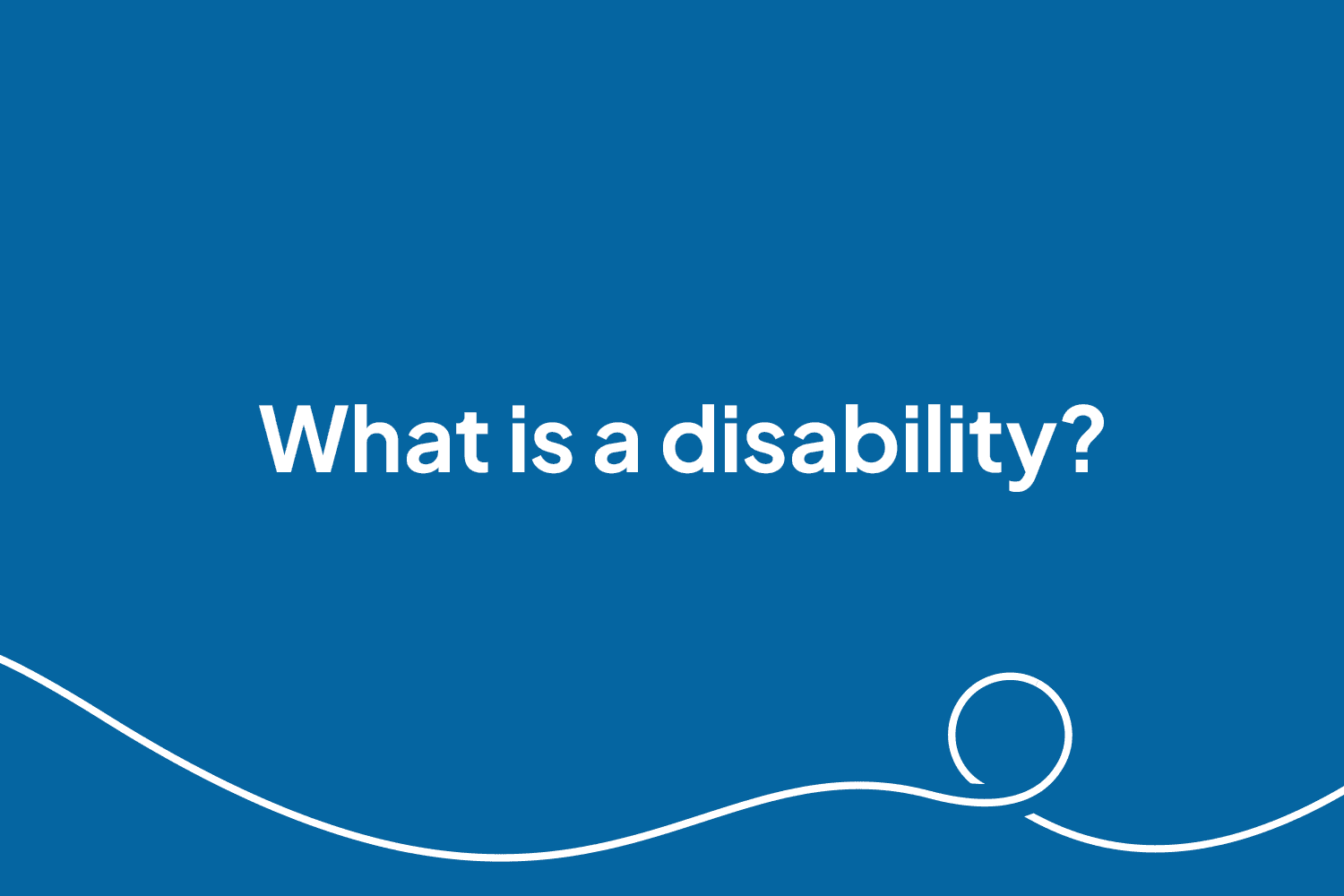
What is a disability?
In a world where misconceptions about disability are common, it’s time to shed some light on what disability means.
A disability is any condition of the body or mind (impairment) that makes it more difficult for the person with the condition to do certain activities (activity limitation) and interact with the world around them (participation restrictions).
Are all disabilities able to be seen?
Despite common belief, disability isn’t just what can be visibly seen. Disabilities cover a whole range of things that affect how people live their lives. It’s not just physical – it can include things that might not be obvious, better known as hidden or invisible disabilities.
What is a hidden or invisible disability?
Hidden or invisible disability is an umbrella term that defines disabilities that are not immediately apparent – some disabilities cannot be seen from the outside.
According to the Hidden Disabilities organisation, which raises awareness of conditions that affect people without being seen, 80 percent of disabilities are invisible. The organisation says this means there are a billion people in the world living with a hidden disability.
“Anyone with a disability or medical condition that affects their daily living but is not physically visible to another person, has a hidden disability” – Hidden Disabilities organisation.
This could include people with diagnoses of:
- Anxiety
- Autism
- Attention Deficit Hyperactivity Disorder (ADHD)
- Depression
- Multiple Sclerosis
- Brain injuries
- Chronic illnesses
- Chronic pain
- Hearing impairment or Deafness
- Learning difficulties
- Mental health conditions
- Respiratory conditions
- Sleep disorders
- Speech impairments
- Visual impairments or blindness
Is anxiety and depression a disability?
A mental health condition, such as anxiety and/or depression may be considered a disability depending on the impact the condition has on your everyday life. It is important, if you feel that your mental health condition is having a major impact on your daily activities, such as self-care, ability to be in social settings or participating in work, that you speak to your GP about the next steps for accessing disability support.
Is there a list of medical conditions or disabilities?
The most current and accurate medical conditions and disabilities information can be sourced from your GP. However, you can find a Guide to the List of Recognised Disabilities here on the Department of Socials Services website.
Why is it important to understand what a disability is?
There are a range of services and supports available in Australia for people with disability – including CVGT Employment’s Disability Employment Service.
Individuals are often overlooking disability services available to help support them due to a lack of education around health conditions that classify as a disability.
Am I eligible for Disability Employment Services?
You might be eligible for our Disability Employment Services if you’re living with a mental health condition, treated illness, injury or disability that makes it difficult to find and keep a job. This includes living with anxiety or depression, a physical or intellectual disability, learning difficulties, visual or hearing impairment.
To be eligible for Disability Employment Services (DES), you must:
- Have a medically diagnosed disability, health condition or injury
- Receive an income support payment or disability support pension from Centrelink (as from 1 July 2021)
- Be an Australian citizen or permanent resident
- Not be studying full time
- Live in VIC, NSW, QLD, SA, TAS or NT
- Be assessed as having capacity to work less than 30 work hours per week (as from 1 July 2021)
Where can I learn more about Disability Employment Services?
You can visit our Disability Employment Services website here to learn more.
Contact us
Simply fill out our form here and we’ll be in contact shortly to set-up a meeting.
Meet with us
We’ll assess your eligibility, your requirements and find out what you’re looking for!
Start working
We find the right position for you and support you through starting your new job and beyond.